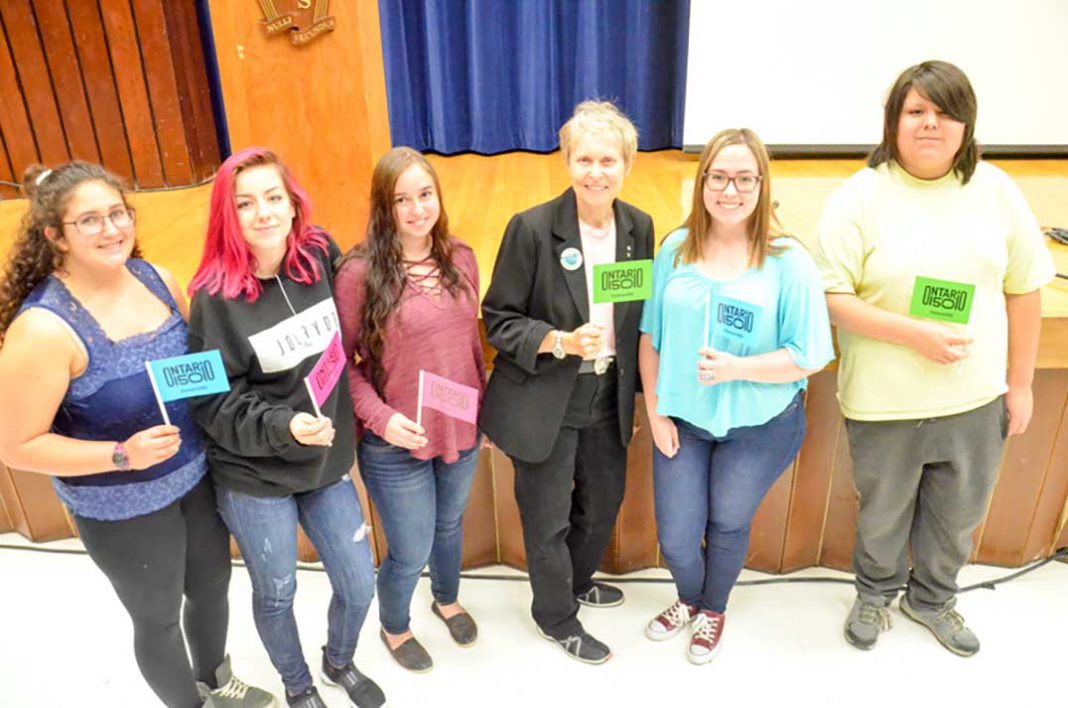M’CHIGEENG—The Manitoulin Secondary School (MSS) cafetorium was standing room only during a recent presentation by Canada’s first woman (and the world’s first neurologist) in space, Dr. Roberta Bondar.
The Roberta Bondar Foundation and Science North have formed a new partnership to celebrate the 25th anniversary of her historic journey into space entitled Earth Matters, a multi-city series of guest appearances focussed on “the trailblazing astronaut’s love for this planet.”
Manitoulin was the last stop on the seven-community tour and Dr. Bondar was visiting both MSS and the Wiikwemkoong High School to deliver an inspirational talk to students and members of the public. The presentations are part of the Ontario 150 anniversary celebrations and are helping to launch the photography-based Ontario 150 Bondar Challenge.
“My view from the spacecraft Discovery 25 years ago forever changed my view of Earth and it was on that flight that I committed to protect this magnificent planet,” said Ms. Bondar. Her foundation is committed to connecting people to nature through photography in order to promote good health and protect the planet.
“(Talking to young students like those at MSS and Wiikwemkoong) is really important because we want to keep people committed to the natural world, because it has so many solutions for all of us,” she said. “If we don’t keep emphasizing it, it won’t happen. I think that my presence allows people to understand there is a little bit of respect here going on—respect for that natural environment and respect for me, maybe they will change the way they look at the natural environment.”
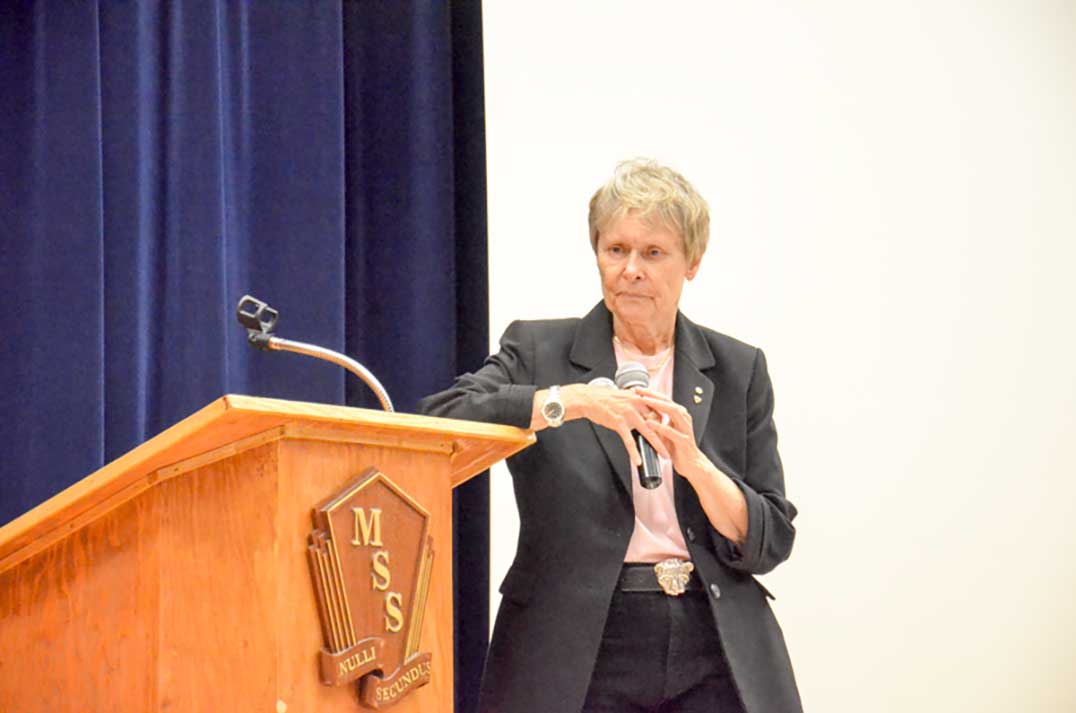
students gathered at Manitoulin Secondary School.
Dr. Bondar covered three basic messages in her presentation. The first was, as might be expected from Canada’s first woman in space, about space and the importance of exploration. As part of that presentation was a short film on the ongoing exploration of the planet Mars.
The second portion of her presentation focussed on the Ontario 150 Bondar Challenge. The Challenge is based on one of the Roberta Bondar Foundation’s most successful programs. The Bondar Challenge invites people to take photographs of an aspect of nature in their own community that they admire and hope will exist 150 years from now. Participants are asked to submit their photographs along with a brief description of why what they have captured is meaningful. Once submitted, these photographs will be “curated into the narratives of each community’s hopes for the ‘natural future’ and publically posted, promoted by the Roberta Bondar Foundation on their website and social media channels, as well as on the Science North website at sciencenorth.ca. (More details on the Ontario 150 Bondar Challenge can be found online at therobertabondarfoundation.org.)
Those submitting to the Ontario 150 Bondar Challenge will also be offered the opportunity to become a Bondar Environment champion via an online pledge. Signing the pledge will commit the signatories to Dr. Bondar’s “Top 10 practices: reduce, reuse, recycle, repair, remake, refuse, restore, replace, remember your shopping bag and respect the earth.”
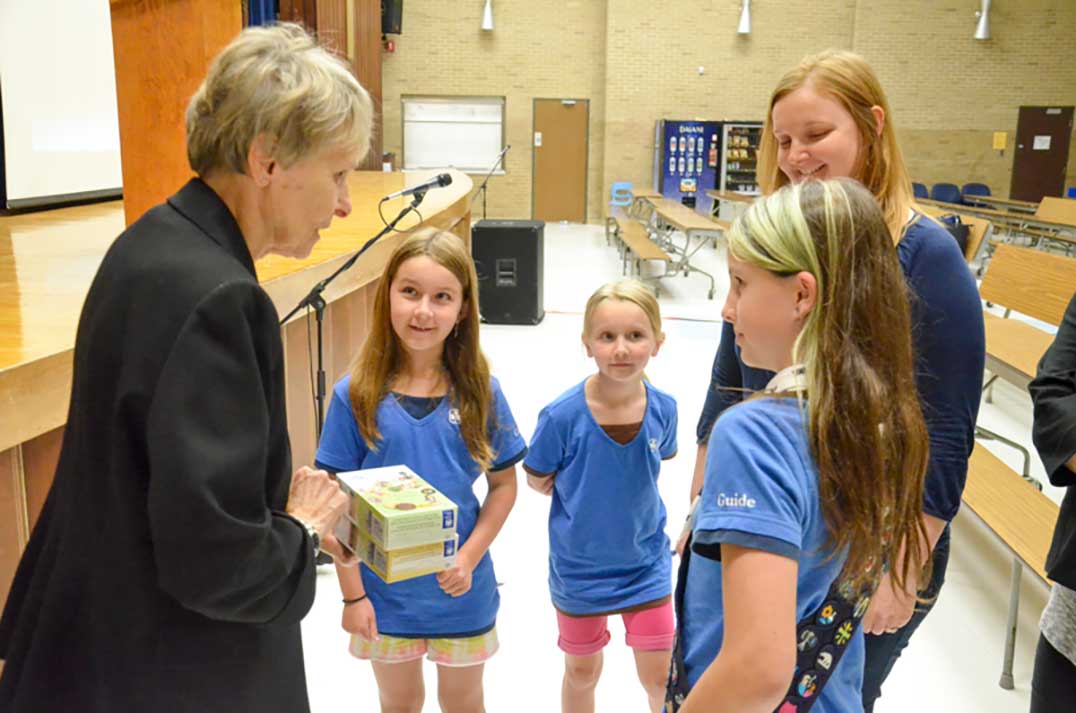
cookies from Island Girl Guides. Dr. Bondar once juggled Girl Guide cookies in space.
photos by Michael Erskine
“It is my hope that when people connect to nature through photography, they will love and respect the earth and work together to protect it so that we can enjoy a healthy life on a healthy planet,” said Dr. Bondar.
The final part of the presentation was focussed on learning more about what was important to the students themselves and focussed on a question and answer session with the students.
Dr. Bondar discussed how she got into space. At the time of selection for the Canadian space program in December 1983, Dr. Bondar was assistant professor of neurology and director of the multiple sclerosis unit at the McMaster Medical Centre in Hamilton, doing both clinical work and research. Her field of research focussed in the nervous system and the inner ear balancing system, particularly as it relates to the functioning of the eye. This had immediate relevance to experiments being planned for the first Canadian space flight. She also conducted research into blood flow in the brain during microgravity, lower body negative pressure and various pathological states.
It seemed intuitive that Dr. Bondar would have focused on STEM (science, technology, engineering and mathematics) studies that are all the rage these days, and in which so many high profile successful women are encouraging women, but this was not the focus of her talk.
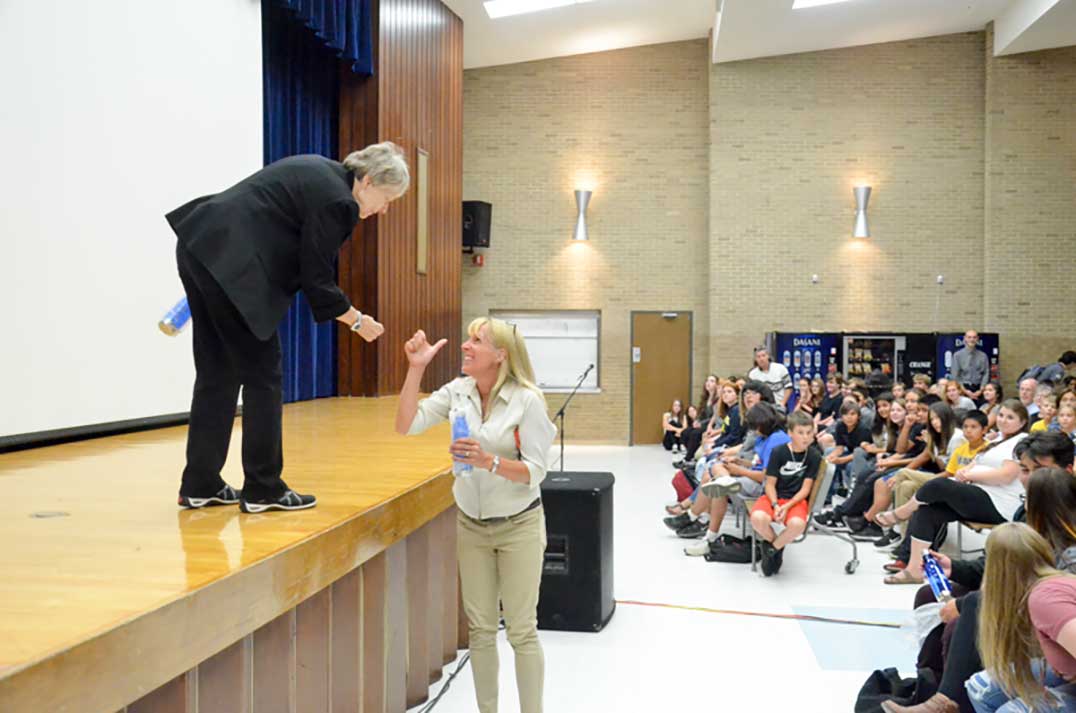
“I am not a physicist,” she explained. “I don’t have the background to answer the questions that would come from that.” Dr. Bondar, who holds five degrees, chose to be more authentic in her approach and to stick to the fields were she does have considerable expertise and insights to share.
The Science North connection was explained in a news release. “As part of Science North’s mandate in serving Northern Ontario we are always looking for ways to extend our reach and bring science education to all communities in Northern Ontario,” said Science North CEO Guy Labine. “We are delighted to partner with Dr. Bondar, who is such an inspiration to so many Canadians, in bringing her insights about our planet to Northern Ontario in such a unique way.”
“Ontario’s 150th anniversary is an opportunity for people to recognize and celebrate the incredible resources our province offers,” said Eleanor McMahon, Ontario minister of Tourism, Culture and Sport in the same release. “Under the leadership of Dr. Bondar and Science North, Earth Matters and the Ontario 150 Bondar Challenge will engage and help people connect with our natural world in an inspiring and impactful way.”
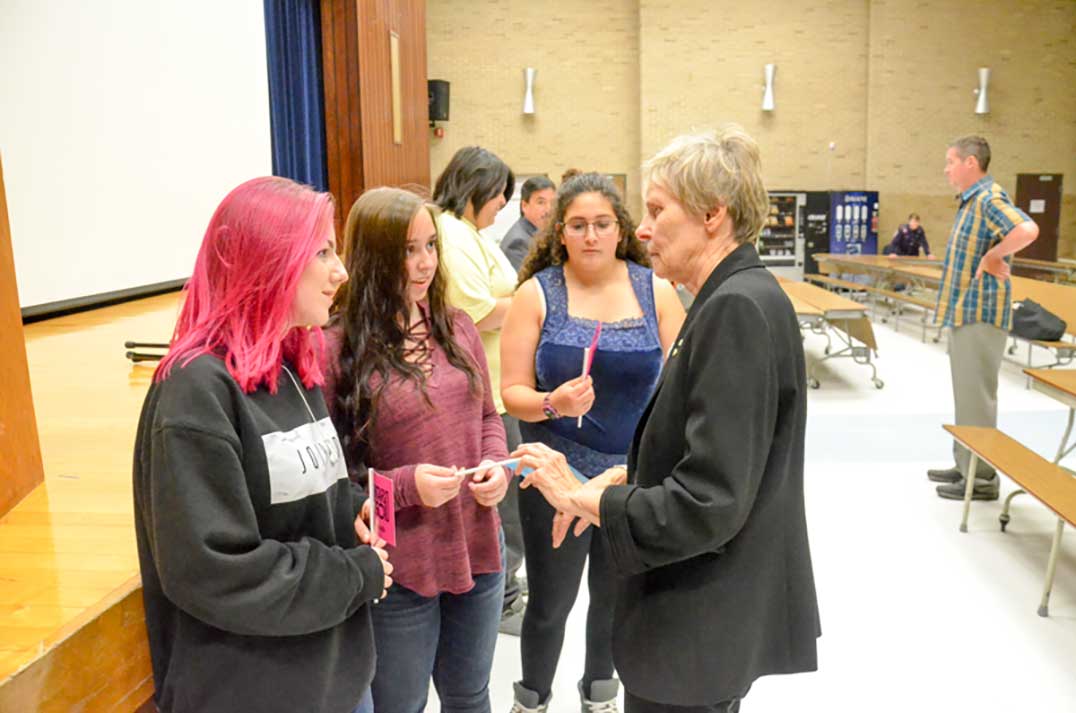
As for the students themselves, the looks of admiration and wonder in the eyes of the Girl Guides who chatted with Dr. Bondar following her presentation spoke volumes, as did the thunderous applause that followed her talk.

